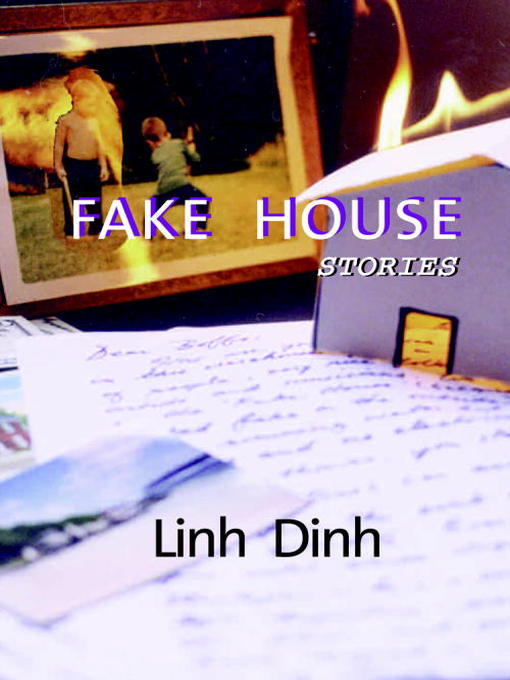
Fake House
Stories
- اطلاعات
- نقد و بررسی
- دیدگاه کاربران
نقد و بررسی

July 1, 2003
Award-winning poet Dinh's (Drunkard Boxing) hit-or-miss first collection of short stories examines postwar Vietnamese in the U.S. and in Vietnam. The 22 stories, often more memorable for their imagery than their plots, are narrated in the no-holds-barred, graphic language distinguishing the author's poetry. The first half of this collection focuses on Vietnamese immigrants living in the U.S. In the title piece, Josh is a free-spirited ne'er-do-well visiting his successful younger brother (whom he nicknames "Boffo," short for "Boffo Mofo") in order to squeeze a few bucks out of him. Boffo tries to disparage Josh's lifestyle, but can't help secretly admiring his brother's world, compared to his own shallow, American dream-like "Fake House." Becky, "The Ugliest Girl," is so plain that "Not counting the freaks, the harelips, the Down's Syndromes, the ones with lye splashed on their face, born without a nose, an extra mouth, five ears, and so on, I am the ugliest girl." The author does not shy away from jarring narrative perspectives. Part Two takes a look at life in Vietnam after the war. Characters like Lai's father, a legless NVA veteran who cares for his grandson while his daughter works as a hostess (prostitute) in a disco, explore the war's lasting effects with a bittersweet humor. His grandson is half African-American, and the vet, who spared an African-American soldier in the war, says to himself, "A karmic joke: Since you liked the first one so much, here! Have another one." Not every literary tone poem presented here is successful. "Two Who Forgot" is more of a rant than a story. But the train wreck of war is hard to look away from, and Dinh, the poet, holds a mirror to the lives of all who suffered and dares the reader to look away. Yet his inveterate use of profane language and raw sexual detail may limit the book's readership.

September 15, 2000
Dinh, a poet and short-story writer, left his native Vietnam in 1975 at age 12 and lived in the U.S. until 1998, when he returned to Saigon. This intimacy with two disparate cultures linked by war imbues his terse and edgy stories with an unsettling blend of anger and resignation. Writing from the point of view of both men and women, Americans and Vietnamese, Dinh portrays a spectrum of hapless characters, from a white man considering ordering an Asian mail-order bride, to a Vietnamese man wondering why more young women in his village don't accept money to marry foreigners, to a white woman who believes she's the ugliest female in the world, to a Vietnamese soldier who, as the only literate man in his battalion, reads everyone else's mail while receiving none himself. Dinh's painful stories feature tricky dialogue rife with pointedly racist misinformation, linguistic confusion, and dunning vulgarities, and evoke a skeptical yet tender vision of humanity, similar in spirit, if not in literary artistry, to that of Sherman Alexie and Aleksandar Hemon.(Reprinted with permission of Booklist, copyright 2000, American Library Association.)




دیدگاه کاربران